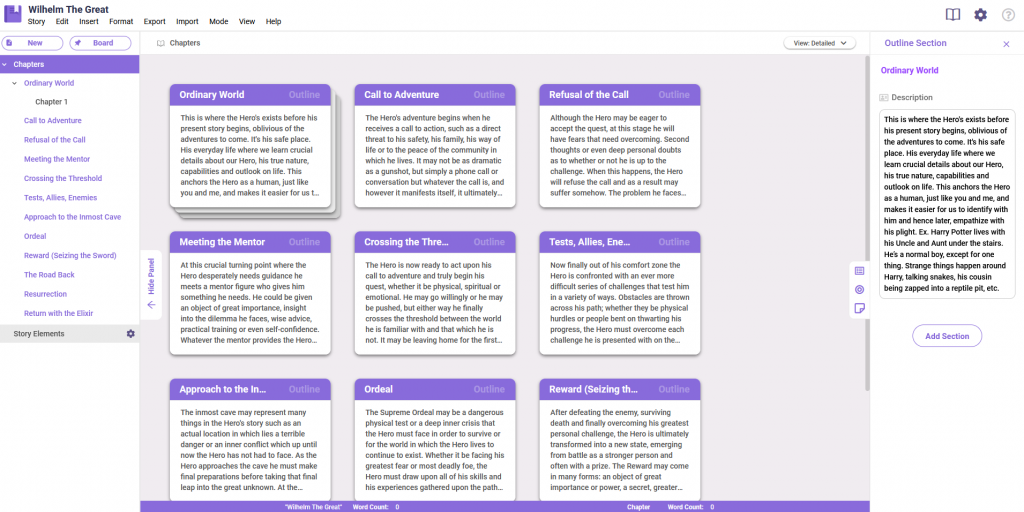5 Tips on Writing Fantasy Villains (that are worth a fight)

Villains bear as much importance as your protagonists. For many stories, the protagonist going against the villain drives the plot forward, and their interactions often define the climax of a story. It’s not ill-advised to even write the villain first before the protagonist — they are the ones who will make your protagonist heroic, after all.
Writing fantasy villains can be as simple as making them evil for the sake of evilness, but that wouldn’t make up for a good story now, would it? That’s why we’ve whipped up 5 tips on how to make your villain become a solid character that is worth the fight against your protagonist.
Give your villains a convincing motivation
Just as your protagonist represents and fights for what he believes is right, so should your villain. Don’t settle on making your villain desire power for the sake of gaining it — give them a reason why they desired that power in the first place. This desire should be logical and should make sense, at least from the point of view of your villain. Justifying their evilness makes them a far more interesting character than being just an obstacle prop in your plot.
Provide a believable backstory for your villain
Following up from the previous tip, your villain also deserves to have a backstory that shows how and why they go against your protagonist (or everything they represent). You can show how they develop from their past circumstances, and how their environment has influenced their way of thinking. Revealing the injustices that your villain went through can provide enough logic to motivate your villain, and it can also make your readers empathize or sympathize, even for a bit, with them.
Part of giving your villain a backstory is the possibility that they didn’t always come from the bad side, that they did not start out as the bad guy. You can show how they transitioned from good to bad, especially where everything started to go wrong. Developing this backstory makes your villain even more believable and allows you to explore plot points around their origins.
Don’t make your villain stupid
Have you seen those shows where the villain takes their sweet time explaining their grand plans to rule over the world in the midst of a fight? Not only do those kinds of villains look stupid, but they also don’t seem to be villains that are worth our protagonist’s struggles and trials. If the story needs your villain to be stupid for your story to succeed, then you might want to rewrite your villain.
Your protagonist basically warms up for the most part of the novel, so your villain should be worth the final fight. Good villains are not only smart, but they are often meticulous, planning a lot of things for their goals to succeed. A villain that is equal in power with your hero makes their encounters intense and interesting that can keep readers on edge.
Get your villain involved with your hero
The fate of your protagonist should be connected to that of your antagonist, and culminate in the climax of your story. The character development of your hero should be supported by your hero’s opposition to the villain. As such, your villain should create the opportunities that explore your hero’s weaknesses and inspire your hero to become stronger.
You can plan these opportunities ahead with LivingWriter’s Outlines and Chapters. You can plot out exactly how your hero would first meet your villain and how that encounter would go. You can also place foreshadowing details in your outline that show how involved your villain is with your hero in his journey. When you’re finally writing your draft, all these notes will stay in a handy place just beside your document, so you can refer to them anytime.

Vividly describe your villain
The introduction of your villain should make it clear that they’re a threat to your protagonist right at the get-go. Writing fantasy villains is not that different from writing other characters, but you should put emphasis on the evilness of these villains. There should be a prominent feature of your villain, that doesn’t have to be a physical trait, that just screams villainy. The readers should immediately sense the evil from the villain once they’re introduced, giving them a clue on the strength of the villain that also foreshadows the required development of your hero.
Finishing Up
Writing fantasy villains is important; they drive the plot forward and encourage the development of your protagonist. Yes, they might be the antithesis of your protagonist, but they also define the blueprint that your hero needs to fit in for the resolution of your novel. It can be a challenge, but LivingWriter is here to help you. From planning out each encounter to keeping notes of your characters, LivingWriter is easily the best writing companion app for fantasy writers everywhere.